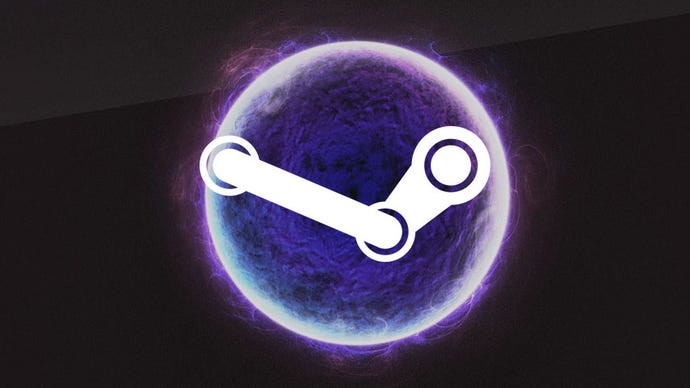Valve clarifies policy against using Steam to promote other versions of games
Valve has said that the recent Steamworks update is not part of a new policy.
Update: Following the publication of this story, Valve got in touch to clarify that the update made recently to a Steamworks developer-facing FAQ "was not really the introduction of any new policy."
Instead, Valve simply wanted an easier way for reminding anyone who publishes on Steam not to promote games' availability on other platforms, or post links to content that violates Steam's general policies.
"Regarding the updated language on the Steamworks Community FAQ; the general spirit of this update was to remind content creators that their Steam pages should not be used for certain activities such as for the promotion of a game's exclusive availability on a competing platform, the promotion of an external download that circumvents Steam content policies, or the promotion of other activity that conflicts with the Steam Distribution Agreement," a Valve representative said in a statement.
"The new language on the FAQ was not really the introduction of any new policy or policing that should concern the majority of those publishing on Steam, but more of a reminder of existing rules for a small number of developers exploring the boundaries of the existing policies."
You can find the original story below.
Original story: Valve has updated the big Steamworks documentation with a new clause under the community section. It's not clear when the update was made, but a cursory look at Wayback Machine indicates the change was recent.
At the bottom of the page, Valve added a new question to a pre-existing FAQ. The question and answer specifically address cases where a developer would want to use the Steam community features, such as announcements, forums etc. to let customers know about a non-Steam version of the game.
Sometimes that comes in the form of mentioning the Epic Games Store to make potential Steam customers aware of when the exclusivity period is going to end. But this could also cover instances where the developer is simply discussing the console version in one way or another.
"In the game you ship via Steam, and in communications on Steam, you may only promote the Steam version and its availability via Steam, and not other distribution outlets. This applies both to full versions of your game and to content patches that change the existing version," it reads.
The last bit refers to adult games, mostly visual novels, that tend to post links to the full patch notes on Steam, but not the patch notes themselves.
In the past, many developers relied on Steam's more robust community tools to either troubleshoot problems with other versions, or promote the game through trailers and the like, even when the game wasn't itself available on Steam.

